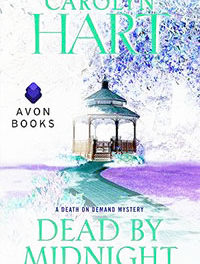MY TAKE:
I’ve read at least my share (if not more than my share) of WWII/Holocaust books, so was surprised that this one wasn’t even on my radar. It should have been. Since I’ve decided to only read one such book per year (these books exact significant emotional drain), I’m glad this year’s was “All But My Life.”
This true story of a young Jewish girl living in Poland whose life is forever altered by the war is heart wrenching on many levels, yet manages to convey hope. Gerda’s naive faith in basic human goodness is almost entirely shattered by cruelty, but is somehow kept alive by rare – yet powerful – acts of compassion from her enemies.
The writing is fairly straightforward, not necessarily eloquent or compelling. Initially, I was somewhat critical of this. But as I became more engrossed in Gerda’s story, I would be deeply moved by a simple phrase or even a single word. In the case of the words in this book, I often found less to be much, much more.
I highly recommend this book, which has earned a place on my Holocaust literature bookshelf.
GOODREADS SUMMARY:
All But My Life is the unforgettable story of Gerda Weissmann Klein’s six-year ordeal as a victim of Nazi cruelty. From her comfortable home in Bielitz (present-day Bielsko) in Poland to her miraculous survival and her liberation by American troops–including the man who was to become her husband–in Volary, Czechoslovakia, in 1945, Gerda takes the reader on a terrifying journey.
Gerda’s serene and idyllic childhood is shattered when Nazis march into Poland on September 3, 1939. Although the Weissmanns were permitted to live for a while in the basement of their home, they were eventually separated and sent to German labor camps. Over the next few years Gerda experienced the slow, inexorable stripping away of “all but her life.” By the end of the war she had lost her parents, brother, home, possessions, and community; even the dear friends she made in the labor camps, with whom she had shared so many hardships, were dead.
Despite her horrifying experiences, Klein conveys great strength of spirit and faith in humanity. In the darkness of the camps, Gerda and her young friends manage to create a community of friendship and love. Although stripped of the essence of life, they were able to survive the barbarity of their captors. Gerda’s beautifully written story gives an invaluable message to everyone. It introduces them to last century’s terrible history of devastation and prejudice, yet offers them hope that the effects of hatred can be overcome.












